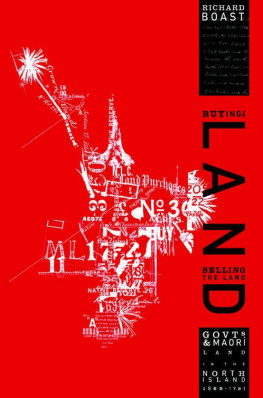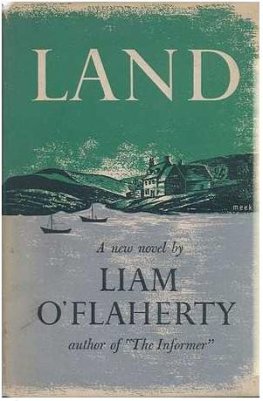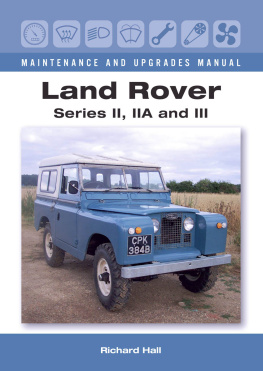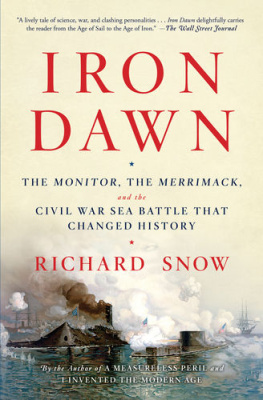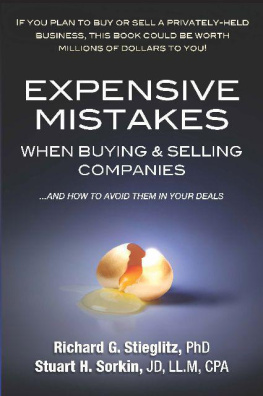Richard Boast - Buying the Land, Selling the Land
Here you can read online Richard Boast - Buying the Land, Selling the Land full text of the book (entire story) in english for free. Download pdf and epub, get meaning, cover and reviews about this ebook. year: 2010, publisher: Victoria University Press, genre: Politics. Description of the work, (preface) as well as reviews are available. Best literature library LitArk.com created for fans of good reading and offers a wide selection of genres:
Romance novel
Science fiction
Adventure
Detective
Science
History
Home and family
Prose
Art
Politics
Computer
Non-fiction
Religion
Business
Children
Humor
Choose a favorite category and find really read worthwhile books. Enjoy immersion in the world of imagination, feel the emotions of the characters or learn something new for yourself, make an fascinating discovery.
- Book:Buying the Land, Selling the Land
- Author:
- Publisher:Victoria University Press
- Genre:
- Year:2010
- Rating:3 / 5
- Favourites:Add to favourites
- Your mark:
- 60
- 1
- 2
- 3
- 4
- 5
Buying the Land, Selling the Land: summary, description and annotation
We offer to read an annotation, description, summary or preface (depends on what the author of the book "Buying the Land, Selling the Land" wrote himself). If you haven't found the necessary information about the book — write in the comments, we will try to find it.
Buying the Land, Selling the Land — read online for free the complete book (whole text) full work
Below is the text of the book, divided by pages. System saving the place of the last page read, allows you to conveniently read the book "Buying the Land, Selling the Land" online for free, without having to search again every time where you left off. Put a bookmark, and you can go to the page where you finished reading at any time.
Font size:
Interval:
Bookmark:
To Gordon Cooper and Margaret Avery
Following page 234
Sir Donald McLean (18201877), Chief Land Purchase Commissioner, Hawkes Bay runholder and Native Minister in the FoxVogel Ministry.
F-103970-1/2, Burton Brothers Collection, Alexander Turnbull Library, Wellington.
Wi Pere, of Te Whanau-a-Kai, Te Aitanga-a-Mahaki and Ngati Kahungunu, prominent East Coast Maori politician, Member of Parliament, and colleague of William Rees in the ill-fated East Coast Trusts scheme
F-34936-1/2, Gordon Collection, Alexander Turnbull Library, Wellington.
Sir James Carroll, photographed around 1910, who became Native Minister in the Liberal Government in 1899. Carroll had to walk a difficult political tightrope between protecting Maori from further land alienations and the pressures of his own colleagues and from the opposition to ensure that Maori land continued to be available to settlers.
G-4933-1/2, H L Schmidt Collection, Alexander Turnbull Library, Wellington.
W L Rees, Liberal politician and prominent lawyer, Wi Peres colleague in the East Coast Trusts project, and chairman of the ReesCarroll Commission of 1891.
F-147-35mm -B, Alexander Turnbull Library, Wellington.
Kurupo Tareha, prominent Ngati Kahungunu leader and champion golfer.
F-38029-1/2, Alexander Turnbull Library, Wellington.
Rua Kenana, Tuhoe political and religious leader, photographed in 1908.
Reference F-19618-1/2, James Cowan Collection, Alexander Turnbull Library, Wellington.
Sir Robert Stout, Colonial Premier (1884-1887), Chief Justice for 26 years, and Apirana Ngatas colleague on the StoutNgata Commission 19071908.
F-98550-1/2, Alexander Turnbull Library, Wellington.
The young Apirana Turupa Ngata, photographed circa 1905, Ngati Porou leader, lawyer and politician.
F-181-35mm-F, Alexander Turnbull Library, Wellington.
Herbert Guthrie-Smith, sheepfarmer, naturalist and author of the environmental history classic Tutira.
F-112218-1/2, Sir Charles Fleming Collection, Alexander Turnbull Library, Wellington.
Tamatekapua, Ngati Whakaues famous wharenui, or meeting house, at Ohinemutu, photographed some time before 1904. The Fenton agreement was signed here in 1880.
F-29166-1/2, Alexander Turnbull Library, Wellington.
Mt Tarawera from near the site of Te Ariki Village, photographed shortly after the 1886 eruption.
F-20839-1/2, Crompton-Smith Collection, Alexander Turnbull Library, Wellington.
View overlooking Ohinemutu, Rotorua, circa 1912.
G-22883-1/1, S C Smith Collection, Alexander Turnbull Library, Wellington.
View of Gisborne, circa 1885.
G-96267-1/2, D M Beere Collection, Alexander Turnbull Library, Wellington.
View of Road Inspectors Camp, Te Whaiti, Te Urewera, 1896 (at the time of the first Urewera Commission). Elsdon Best at left, next to the Tuhoe rangatira Tutakangahau.
F-4607-1/2, Elsdon Best Collection, Alexander Turnbull Library, Wellington.
Unidentified group of Maori people outside a whare on the Whanganui River, 1908. This is a typical example of Maori housing at this time. F-51741-1/2, F G Radcliffe Collection, Alexander Turnbull Library, Wellington.
Surveyor and dog outside a bush dwelling, possibly James Mackay at Raketapauma, Turakina Valley.
F-81605-1/2, Alexander Turnbull Library, Wellington.
Coming back from the Native Land Court, postcard designed by Trevor Lord, early 1920s. This typifies contemporary standard prejudices regarding Maori and the Court.
A-279-026, Alexander Turnbull Library, Wellington.
Stumps remaining after a bush burn, probably in the Taranaki area, 1910.
G-9797-1/1, James McAllister Collection, Alexander Turnbull Library, Wellington.
Land cleared for dairy farming, looking towards Mt Taranaki, circa 1900.
F-117279-1/2, Alexander Turnbull Library, Wellington.
Lake Tutira, Hawkes Bay, photographed around 1939.
MNZ-2681K, Alexander Turnbull Library, Wellington.
This book is a study of Crown Maori land policy and practice in the period 18651929, from the establishment of the Native Land Court until the cessation by Gordon Coates of large-scale Crown purchasing. In the intervening period virtually the main function of the Native Department was to purchase Maori land, and, to the extent that the New Zealand State had a Maori policy, the focus was on acquisition of Maori land in the interests of closer settlement. Locked into complex legal structures which prevented them from turning their assets into capital and thus increasing their value, many Maori took the only realistic option available, and sold.
Alienation of land by sale requires two parties, a buyer and a seller. This book is about both.
My interest in this subject had its origins as long ago as 1992 when I first began working on the confiscation (raupatu) of the MohakaWaikare lands in northern Hawkes Bay as part of a Waitangi Tribunal claim. Part of the project involved a close study of Crown purchasing of a number of important blocks, and this work revealed to me the scale and richness of documentation surviving in the files of the Native Land Purchase section of the Native Department. It revealed also the absence of any useful published text which could help me navigate my way around the extraordinary complexities of government purchasing in blocks such as Tutira or Tarawera. While there were a number of summary histories of Maori policy, I found that there was no published text which explained the actual functioning of the Crown purchasing system. This book is thus an attempt to remedy that gap.
The story the book tells is in many ways a bleak and grim one of a tsunami of Crown purchasing crashing over a people who were in very difficult circumstances. Yet it is important to recognise that government purchasing of Maori land was in its own way driven by genuine, if blinkered, idealism. This book is also something of a reaction to the the-Crown-has-been-very-naughty school of New Zealand history. Much of the book is devoted to an examination of government purchasing policy. Many of the most idealistic and impressive politicians that New Zealand has produced, including Sir Donald McLean, John Ballance and John McKenzie were strong advocates of expanded and state-controlled land purchasing. It is as important to understand their motives as it is to attempt to gauge the social and economic effects of purchasing on the Maori people.
There are many debts to acknowledge. Many people have contributed to the making of this book. (Whether they realise this, or are anxious to be appropriated as progenitors is another matter, needless to say.) Above all others I must thank Bevan Taylor, Hetia Hiha and others of Ngati Tu and Ngati Hineuru who entrusted me with the task of researching and presenting the documentary side of their Waitangi Tribunal claims during the period 19926. I owe another debt to the members of the Ngati Whare claims committee of Te Whaiti and Murupara who invited me to research the history of the Te Whaiti block in 1997, thus allowing me to broaden my understanding of the Crown purchasing process as well as to learn something of the special qualities and history of their beautiful and evocative region. Particular thanks are due to Robert Wiri, James Goldsmith, Jack Ohlsen and Parekure Matekuare of Ngati Whare. And, although our long association has focused mainly on other problems rather than on the subject matter of this book, it gives me much pleasure to acknowledge colleagues and friends of the Ngati Toa runanga at Porirua and others associated with Takapuwahia Marae, especially Miria Pomare, Matiu Rei, Matiu Baker, and the late Hepa Solomon, Ken Arthur and Bill Katene.
Font size:
Interval:
Bookmark:
Similar books «Buying the Land, Selling the Land»
Look at similar books to Buying the Land, Selling the Land. We have selected literature similar in name and meaning in the hope of providing readers with more options to find new, interesting, not yet read works.
Discussion, reviews of the book Buying the Land, Selling the Land and just readers' own opinions. Leave your comments, write what you think about the work, its meaning or the main characters. Specify what exactly you liked and what you didn't like, and why you think so.

